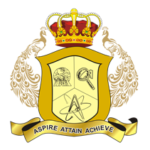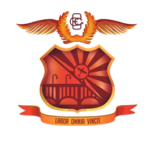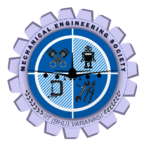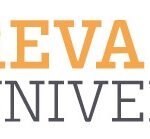Technology Consultant | AI | Data Science | Machine Learning
- Machine Learning and AI
- Data Science and Machine Learning
- Internet of Things (IoT) using Node MCU
- Self Driving Car/ Autonomous Vehicle
- Electric Vehicle
- Ethical hacking and Cyber Security
- Blockchain
- Cloud Computing
- DevOps
- Unity Game Development Workshop
- Tableau BI
- Virtual Reality Workshop
- Python Programming
- Advanced JAVA
- Robotics Process Automation (RPA)
- BIG DATA Analytics & Hadoop
- AI ChatBot
Unity Game Development Workshop
OPEN TO: Faculty | Students | Professionals | Tech
Enthusiasts
About
This is the most comprehensive course on Unity 3d. The course helps participants in creating 2D and 3D games within the Unity3D engine. It emphasizes and develops a deep understanding of the fundamentals of core modular game asset creation, level design, C# game scripting, developing menus, and linking scenes together for a game compilation. This course will take you down a guided learning path such that you will not only be able to
build games but also learn how to do it the way the professionals do it.
Audience:
- Beginners with no coding experience or Unity 3D experience Game developers who want to learn Unity
- Anyone who wants to learn 2D or 3D game development but
- doesn’t know where to start.
Content:
Module 1: Introduction to Unity
- Getting to Know the Unity Editor
- The Project Dialog
- The Unity Interface
- The Project View
- The Hierarchy View
- The Inspector View
- The Scene View
- The Game View
- Honorable Mention: The Toolbar
- Navigating the Unity Scene View
- The Hand Tool
- Flythrough Mode
Module 2: Game Objects
- Dimensions and Coordinate Systems
- Putting the D in 3D
- Using Coordinate Systems
- World Versus Local Coordinates
- Game Objects
- Transforms
- Translation
- Rotation
- Scaling
- Hazards of Transformations
- Transforms and Nested Objects
Module 3: Models, Materials, and Textures
- The Basics of Models
- Built-In 3D Objects
- Importing Models
- Models and the Asset Store
- Textures, Shaders, and Materials
- Textures
- Shaders
- Materials
- Shaders Revisited
Module 4: 3D Terrain
- Terrain Generation
- Adding Terrain to Your Project
- Heightmap Sculpting
- Unity Terrain Sculpting Tools
- Terrain Textures
- Importing Terrain Assets
- Texturing Terrain
Module 5: Environments
- Generating Trees and Grass
- Painting Trees
- Painting Grass
- Terrain Settings
- Environment Effects
- Skyboxes
- Fog
- Lens Flares
- Water
- Character Controllers
- Adding a Character Controller
- Fixing Your World
Module 6: Lights and Cameras
Lights
Point Lights
Spotlights
Directional Lights
Creating Lights Out of Objects
- Halos
- Cookies
- Cameras
- Anatomy of a Camera
- Multiple Cameras
- Split Screen and Picture in Picture
- Layers
- Working with Layers
- Using Layers
Module 7: Scripting—Part 1
- Scripts
- Creating Scripts
- Attaching a Script
- Anatomy of a Basic Script
- The Using Section
- The Class Declaration Section
- The Class Contents
- Variables
- Creating Variables
- Variable Scope
- Public and Private
- Operators
- Arithmetic Operators
- Assignment Operators
- Equality Operators
- Logical Operators
- Conditionals
- The if Statement
- The if / else Statement
- The if / else if Statement
- Iteration
- The while Loop
- The for Loop
Module 8: Scripting—Part 2
Methods
- Anatomy of a Method
- Writing Methods
- Using Methods
- Input
- Input Basics
- Input Scripting
- Specific Key Input
- Mouse Input
- Accessing Local Components
- Using GetComponent
- The Transform
- Accessing Other Objects
- Finding Other Objects
- Modifying Object Components
Module 9: Animations
- Animation Basics
- The Rig
- The Animation
- Animation Types
- 2D Animations
- Creating the Animation
- Animation Tools
- Animation Window
- Creating a New Animation
- Record Mode
- The Curves Editor
Module 10: Animators
- Animator Basics
- Rigging Revisited
- Importing a Model
- Configuring Your Assets
- Rig Preparation
- Animation Preparation
- Creating an Animator
- The Animator View
- The Idle Animation
- Parameters
- States and Blend Trees
- Transitions
- Scripting Animators
Module 11: Mobile Development
- Preparing for Mobile
- Setting Up Your Environment
- The Unity Remote
- Accelerometers
- Designing for the Accelerometer
- Using the Accelerometer
- Multi-Touch Input
OUR CLIENTS


















Previous
Next
